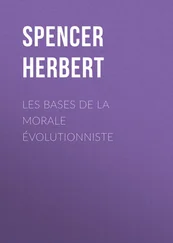Herbert Spencer - Illustrations of Universal Progress - A Series of Discussions
Здесь есть возможность читать онлайн «Herbert Spencer - Illustrations of Universal Progress - A Series of Discussions» — ознакомительный отрывок электронной книги совершенно бесплатно, а после прочтения отрывка купить полную версию. В некоторых случаях можно слушать аудио, скачать через торрент в формате fb2 и присутствует краткое содержание. Жанр: Философия, foreign_antique, foreign_prose, на английском языке. Описание произведения, (предисловие) а так же отзывы посетителей доступны на портале библиотеки ЛибКат.
- Название:Illustrations of Universal Progress: A Series of Discussions
- Автор:
- Жанр:
- Год:неизвестен
- ISBN:нет данных
- Рейтинг книги:4 / 5. Голосов: 1
-
Избранное:Добавить в избранное
- Отзывы:
-
Ваша оценка:
- 80
- 1
- 2
- 3
- 4
- 5
Illustrations of Universal Progress: A Series of Discussions: краткое содержание, описание и аннотация
Предлагаем к чтению аннотацию, описание, краткое содержание или предисловие (зависит от того, что написал сам автор книги «Illustrations of Universal Progress: A Series of Discussions»). Если вы не нашли необходимую информацию о книге — напишите в комментариях, мы постараемся отыскать её.
Illustrations of Universal Progress: A Series of Discussions — читать онлайн ознакомительный отрывок
Ниже представлен текст книги, разбитый по страницам. Система сохранения места последней прочитанной страницы, позволяет с удобством читать онлайн бесплатно книгу «Illustrations of Universal Progress: A Series of Discussions», без необходимости каждый раз заново искать на чём Вы остановились. Поставьте закладку, и сможете в любой момент перейти на страницу, на которой закончили чтение.
Интервал:
Закладка:
Herbert Spencer
Illustrations of Universal Progress: A Series of Discussions
AMERICAN NOTICE
The author of the following work, Mr. Herbert Spencer, of England, has entered upon the publication of a new philosophical system, so original and comprehensive as to deserve the attention of all earnest inquirers. He proposes nothing less than to unfold such a complete philosophy of Nature, physical, organic, mental and social, as Science has now for the first time made possible, and which, if successfully executed, will constitute a momentous step in the progress of thought.
His system is designed to embrace five works; each a distinct treatise, but all closely connected in plan, and treating of the following subjects in the order presented: 1st, First Principles; 2d, Principles of Biology; 3d, Principles of Psychology; 4th, Principles of Sociology; 5th, Principles of Morality. The opening work of the series — First Principles – though somewhat of an introductory character, is an independent and completed argument. It consists of two parts: first, "The Unknowable," and second, "The Laws of the Knowable." Unattractive as these titles may seem, they indicate a discussion of great originality and transcendent interest.
When public consideration is invited to a system of philosophy so extended as to comprehend the entire scheme of nature and humanity, and so bold as to deal with them in the ripest spirit of science, it is natural that many should ask at the outset how the author stands related to the problem of Religion. Mr. Spencer finds this the preliminary question of his philosophy, and engages with it at the threshold of his undertaking. Before attempting to work out a philosophical scheme, he sees that it is at first necessary to find how far Philosophy can go and where she must stop – the necessary limits of human knowledge, or the circle which bounds all rational and legitimate investigation; and this opens at once the profound and imminent question of the spheres and relation of Religion and Science.
Mr. Spencer is a leading representative of that school of thinkers which holds that, as man is finite, he can grasp and know only the finite; – that by the inexorable conditions of thought all real knowledge is relative and phenomenal, and hence that we cannot go behind phenomena to find the ultimate causes and solve the ultimate mystery of being. In such assertions as that "God cannot by any searching be found out;" that "a God understood would be no God at all;" and that "to think God is as we think Him to be is blasphemy," we see the recognition of this idea of the inscrutableness of the Absolute Cause. The doctrine itself is neither new nor limited to a few exceptional thinkers. It is widely affirmed by enlightened science, and pervades nearly all the cultivated theology of the present day. Sir William Hamilton and Dr. Mansel are among its recent and ablest expounders. "With the exception," says Sir William Hamilton, "of a few late absolutist theorizers in Germany, this is perhaps the truth of all others most harmoniously reëchoed by every philosopher of every school;" and among these he names Protagoras, Aristotle, St. Augustine, Melanchthon, Scaliger, Bacon, Spinoza, Newton, and Kant.
But though Mr. Spencer accepts this doctrine, he has not left it where he found it. The world is indebted to him for having advanced the argument to a higher and grander conclusion – a conclusion which changes the philosophical aspect of the whole question, and involves the profoundest consequences. Hamilton and Mansel bring us, by their inexorable logic, to the result that we can neither know nor conceive the Infinite, and that every attempt to do so involves us in contradiction and absurdity; but having reached this vast negation, their logic and philosophy break down. Accepting their conclusions as far as they go, Mr. Spencer maintains the utter incompleteness of their reasoning, and, pushing the inquiry still farther, he demonstrates that though we cannot grasp the Infinite in thought , we can realize it in consciousness . He shows that though by the laws of thinking we are rigorously prevented from forming a conception of that Incomprehensible, Omnipotent Power by which we are acted upon in all phenomena, yet we are, by the laws of thought, equally prevented from ridding ourselves of the consciousness of this Power. He proves that this consciousness of a Supreme Cause is not negative , but positive – that it is indestructible, and has a higher certainty than any other belief whatever. The Unknowable, then, in the view of Mr. Spencer, is not a mere term of negation, nor a word employed only to express our ignorance, but it means that Infinite Reality, that Supreme but Inscrutable Cause, of which the universe is but a manifestation, and which has an ever-present disclosure in human consciousness.
Having thus found an indestructible basis in human nature for the religious sentiment, Mr. Spencer next shows that all religions rest upon this foundation, and contain a fundamental verity – a soul of truth, which remains when their conflicting doctrines and discordant peculiarities are mutually cancelled. In the lower and grosser forms of religion this truth is but dimly discerned, but becomes ever clearer the more highly the religion is developed, surviving every change, and remaining untouched by the severest criticism.
Mr. Spencer then proceeds to demonstrate that all science tends to precisely the same great conclusion; – in all directions investigation leads to insoluble mystery. Alike in the external and the internal worlds, the man of science sees himself in the midst of perpetual changes of which he can discover neither the beginning nor the end. If he looks inward, he perceives that both ends of the thread of consciousness are beyond his grasp. If he resolve the appearances, properties, and movements of surrounding things into manifestations of Force in Space and Time, he still finds that Force, Space, and Time pass all understanding. Thus do all lines of argument converge to the same conclusion. Whether we scrutinize internal consciousness or external phenomena, or trace to their root the faiths of mankind, we reach that common ground where all antagonisms disappear – that highest and most abstract of all truths, which is affirmed with equal certainty by both religion and science, and in which may be found their full and final reconciliation.
It is perhaps hardly just to Mr. Spencer to state his position upon this grave subject without giving also the accompanying reasoning; but so compressed and symmetrical is his argument that it cannot be put into narrower compass without mutilation. To those interested in the advance of thought in this direction, we may say that the discussion will be found unsurpassed in nobleness of aim, eloquence of statement, philosophic breadth, and depth and power of reasoning.
This portion of the work embraces five chapters, as follows: I. Religion and Science; II. Ultimate Religious Ideas; III. Ultimate Scientific Ideas; IV. The Relativity of all Knowledge; V. The Reconciliation.
The second and larger portion of First Principles Mr. Spencer designates "The Laws of the Knowable." By these he understands those fundamental and universal principles reached by scientific investigation, which underlie all phenomena, and are necessary to their explanation. Certain great laws have been established which are found equally true in all departments of nature, and these are made the foundation of his philosophy. The sublime idea of the Unity of the Universe, to which science has long been tending, Mr. Spencer has made peculiarly his own. Through the vast diversities of nature he discerns a oneness of order and method, which necessitates but one philosophy of being; the same principles being found to regulate the course of celestial movement, terrestrial changes, and the phenomena of life, mind, and society. These may all be comprehended in a single philosophical scheme, so that each shall throw light upon the other, and the mastery of one help to the comprehension of all.
Читать дальшеИнтервал:
Закладка:
Похожие книги на «Illustrations of Universal Progress: A Series of Discussions»
Представляем Вашему вниманию похожие книги на «Illustrations of Universal Progress: A Series of Discussions» списком для выбора. Мы отобрали схожую по названию и смыслу литературу в надежде предоставить читателям больше вариантов отыскать новые, интересные, ещё непрочитанные произведения.
Обсуждение, отзывы о книге «Illustrations of Universal Progress: A Series of Discussions» и просто собственные мнения читателей. Оставьте ваши комментарии, напишите, что Вы думаете о произведении, его смысле или главных героях. Укажите что конкретно понравилось, а что нет, и почему Вы так считаете.












